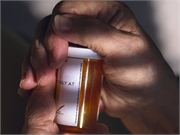MONDAY, March 30, 2020 (HealthDay News) — Could a blood pressure or diabetes medicine make COVID-19 more severe?
A proposed new theory says the coronavirus could be binding to angiotensin converting enzyme 2 (ACE2) receptors in the lower respiratory tracts. Commonly used drugs ACE inhibitors and angiotensin II receptor blockers (ARBs), often used to control heart failure and blood pressure, can increase the number of ACE2 receptors in the body — making these patients more susceptible to severe COVID-19.
Dr. James Diaz, a professor at Louisiana State University’s School of Public Health in New Orleans, warned of the possible risk in a letter to the editor published online March 24 in the Journal of Travel Medicine, based on an analysis of nearly 1,100 COVID-19 patients by Chinese researchers.
That analysis found COVID-19 patients with high blood pressure, heart disease, diabetes or chronic kidney disease often required treatment in an intensive care unit, were placed on ventilators or died. Diaz wrote these patients all had conditions that probably were treated with ACE inhibitors or ARBs and called for studies to see if these drugs were at least partially responsible for the severe outcomes.
Diaz said the Chinese researchers did not include information on whether the patients studied were taking these drugs.
However, cardiologists like Dr. David Kass, a professor at Johns Hopkins School of Medicine in Baltimore, are urging that “people who take these drugs, definitely don’t stop taking them.”
Going off these drugs might result in a heart attack or stroke, and that far outweighs the still theoretical chance of worse COVID-19 outcomes, said Kass and other health experts.
The advice echoes recent statements from major medical societies in the United States in reaction to the notion that certain medicines might make COVID-19 worse.
A joint statement by the American College of Cardiology, the American Heart Association and the Heart Failure Society of America urged patients not to change or stop these medications. The statement explains that the way ACE2 and related substances operate in the body is complex, and there is not enough good information to determine if the drugs might increase harm to COVID-19 patients.
It added that no information now exists from experiments or in medical practice “demonstrating beneficial or adverse outcomes” of these drugs in COVID-19 patients, including those with heart disease.
ACE inhibitors and ARBs might even be beneficial in treating COVID-19, as they limit lung damage in some viral pneumonias, according to the statement. The groups urged more research soon to clarify the issue.
Dr. Daniel Batlle, a professor of nephrology/hypertension at Northwestern University in Chicago, said he has been studying ACE2 for almost 20 years. He said people unfamiliar with ACE2 might think “it’s a receptor. If you amplify it in some way, it will make it easier for the virus to enter cells.”
The reality is not so black-and-white, Batlle explained. ACE2 is an enzyme that exists in two forms and is found in several organs besides the lungs, including the heart, kidneys and intestines. It is part of a regulatory system that affects widening and narrowing of blood vessels.
“Even data in animals is not straightforward,” he said of animal studies showing ARBs increase ACE2. Less evidence exists for ACE inhibitors.
According to a paper co-authored by Batlle on the matter published March 25 in the journal Hypertension, no data supports the theory that these drugs make it easier for the coronavirus to enter human cells.
Co-author A.H. Jan Danser, a professor of pharmacology at the Erasmus University Medical Center in the Netherlands, said there’s no data proving these drugs increase ACE2 receptors in human cells.
ACE2 may be both harmful and beneficial at different times in COVID-19 infection, said Dr. Ankit Patel, a nephrologist at Brigham and Women’s Hospital and Massachusetts General Hospital, both in Boston. It’s possible the enzyme does make viral entry into cells easier, but it later helps combat inflammation and lung damage, he noted.
In a March 24 viewpoint piece for the Journal of the American Medical Association, Patel wrote that ARBs improved lung injury in mice caused by SARS-CoV, the coronavirus that caused the SARS epidemic in 2003.
Diaz said some of the questions about these drugs and the role they play in COVID-19 may be answered by analyzing new data coming out of Italy and other pandemic hotspots.
More information
For more on heart health relating to the coronavirus, see the American College of Cardiology.
Copyright © 2026 HealthDay. All rights reserved.

